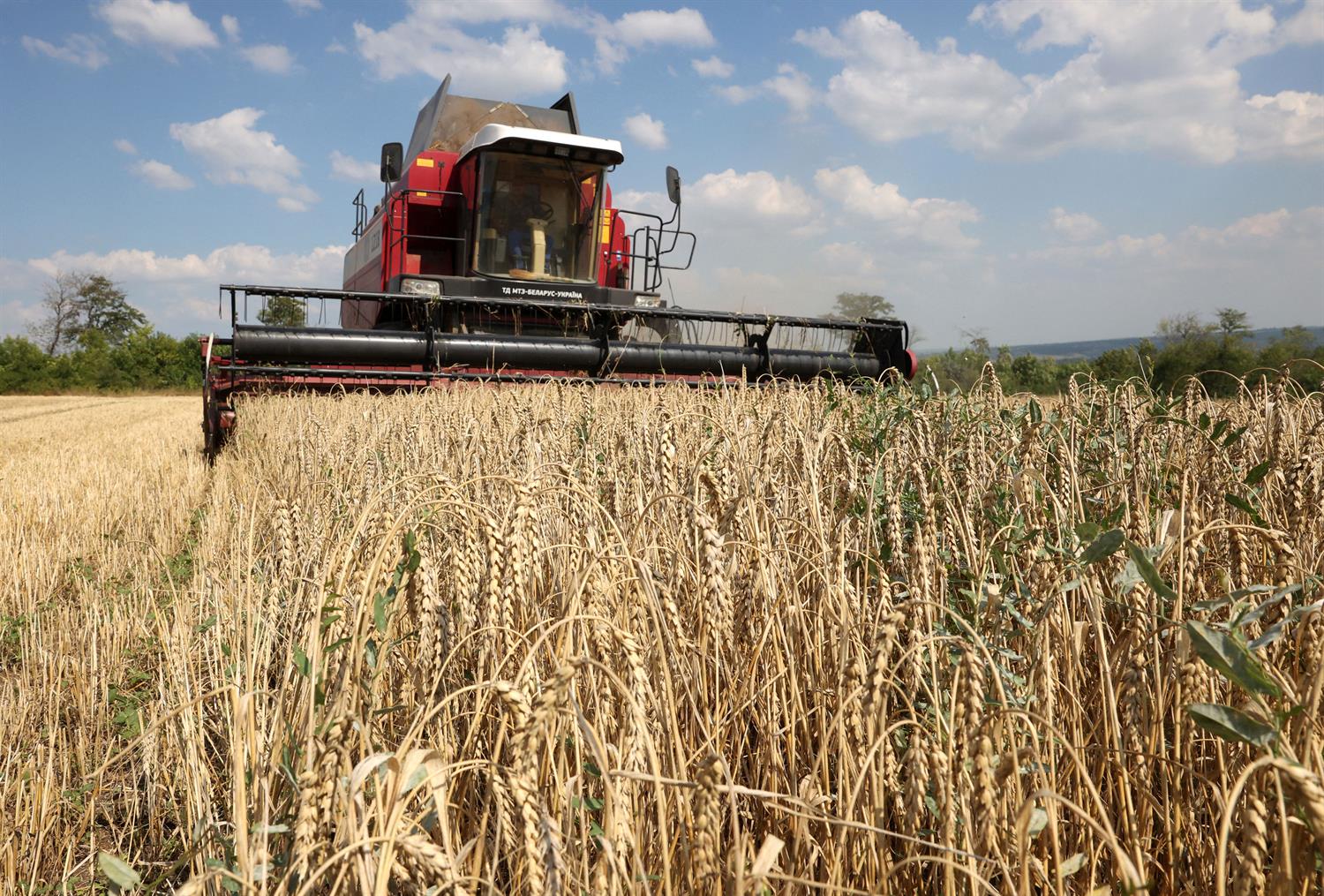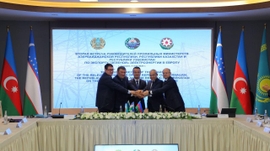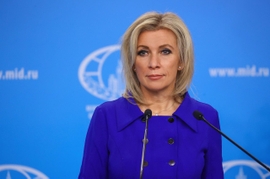Iran has proposed its transport corridors as an alternative route to export Russian grain to third countries, according to Iran’s Deputy Minister of Economy and Finance for Economic Policy.
“The point is that Iran can not only import grain from Russia to meet its own needs, but also provide its territory as a corridor for the export of Russian grain to third countries,” Deputy Minister Seyed Ali Rouhani said in an interview with RIA Novosti on October 12.
“The Russian side can count on Iran as a reliable and long-term partner,” he added. “The conflict in Ukraine and the subsequent Western sanctions against the Russian Federation have practically made the Iranian route a safe and alternative route for the export of Russian grain.”
However, Moscow has not yet used this opportunity, Rouhani said. “Unfortunately, we are working in this direction a little slowly... This path is certainly the path of long-term partnership and strategy,” he added.
Meanwhile, Iranian Parliament Speaker Mohammad Baqer Qalibaf said at the BRICS Parliamentary Forum in South Africa on September 27 that Tehran has always demanded an immediate halt to the war in Ukraine.
He also blamed the US and NATO for being "the main cause" for the ongoing conflict, and for "vetoing all formulas for a cease-fire and peace".
Earlier, Ukraine, Poland and Lithuania agreed on a plan to help expedite Ukrainian grain exports, officials said on October 3, with needy countries beyond Europe potentially benefitting from faster procedures.
The deal means that grain inspections will shift from the Ukraine-Poland border to a Lithuanian port on the Baltic Sea. The move seeks to facilitate the transit of Ukrainian exports through Polish territory.
From the Lithuanian port of Klaipeda, where the inspections for pests and plant diseases are taking place from October 4, the grain can be exported by sea around the world.
While the stated goal is to hasten Ukrainian grain exports, the agreement may also help defuse tensions over grain prices between Ukraine and Poland at a time when some international support for Kyiv’s efforts to throw back Russia’s invasion may be fraying.
Agricultural exports have brought one of the biggest threats to European unity for Ukraine since Russia invaded. Russia dealt a huge blow by withdrawing in July from a wartime agreement that ensured safe passage for Ukrainian grain through the Black Sea. That has left more expensive overland routes through Europe as the main path for Ukraine’s exports.
Farmers in nearby countries have been upset that Ukraine’s food products have flooded their local markets, pushing prices down and hurting their livelihoods. Sealed freight has helped combat that problem, and sending Ukrainian grain straight to the Lithuanian port may also be an answer.
Poland, Hungary and Slovakia announced bans on local imports of Ukrainian food after a European Union embargo ended in mid-September. Ukraine filed a complaint soon afterwards with the World Trade Organization as the spat worsened.
The EU countries said they would keep allowing those products to move through their borders to other parts of the world. Ukraine is a major global supplier of wheat, barley, corn and vegetable oil and has struggled since Russia’s invasion to get its food products to parts of the world in need.
Ukraine plans to export 75% of its harvested grain in 2023, Prime Minister Denys Shmyhal said on October 3, adding that this year Ukraine would harvest over 79 million tonnes of grain, which is about 10% more than in 2022.
Russia on July 17 halted a breakthrough wartime deal that allowed grain to flow from Ukraine to countries in Africa, the Middle East and Asia where hunger is a growing threat and high food prices have pushed more people into poverty.
According to Kremlin spokesman Dmitry Peskov, the Black Sea Grain Initiative would be suspended until demands to get Russian food and fertilizer to the world are met. “When the part of the Black Sea deal related to Russia is implemented, Russia will immediately return to the implementation of the deal,” Peskov said.
The Black Sea Grain Initiative or the Initiative on the Safe Transportation of Grain and Foodstuffs from Ukrainian ports, commonly called the grain deal in the media, was an agreement among Russia, Ukraine, Türkiye and the United Nations during the Russian invasion of Ukraine.







 Azerbaijan, Uzbekistan, and Kazakhstan are planning to merge their energy systems following a historic memorandum of understanding (MoU) signed by ...
Azerbaijan, Uzbekistan, and Kazakhstan are planning to merge their energy systems following a historic memorandum of understanding (MoU) signed by ...
 President Ilham Aliyev praised Azerbaijan’s cultural diversity as a key factor in fostering peace, stability, and unity within the country, where a...
President Ilham Aliyev praised Azerbaijan’s cultural diversity as a key factor in fostering peace, stability, and unity within the country, where a...
 Ulviyya Fataliyeva, a female Azerbaijani chess grandmaster, was crowned this week at the European Women’s Chess Championship (EWCC) in Rhodes, Gree...
Ulviyya Fataliyeva, a female Azerbaijani chess grandmaster, was crowned this week at the European Women’s Chess Championship (EWCC) in Rhodes, Gree...
 The Iranian and Cuban transport ministers have discussed expanding maritime and air transportation cooperation.
The Iranian and Cuban transport ministers have discussed expanding maritime and air transportation cooperation.
 U.S. Secretary of State Antony Blinken reiterated Washington’s unwavering support for the ongoing peace process between Azerbaijan and Armenia in a...
U.S. Secretary of State Antony Blinken reiterated Washington’s unwavering support for the ongoing peace process between Azerbaijan and Armenia in a...



